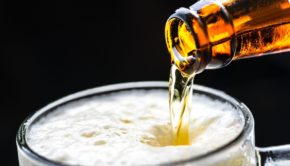IBA warns again of Alcohol Bill consequences

Today sees the return of the Irish Craft Beer Festival at Dublin's RDS, an event at which the Irish Brewers Association has taken the opportunity to warn of the consequences if the controversial Public Health (Alcohol) Bill is passed.
8 September 2017
The Irish Craft Beer Festival returns to the RDS in Dublin this weekend, at a time when Beer is enjoying a very strong showing in the Irish market. According to the Irish Brewers Association, beer remains Ireland’s most popular alcoholic drink, with a 46.2% market share and craft beers showing exponential growth. A 3.4% market share for the latter in 2016 has grown from 2.5% in 2015.
Amid this positive time for small businesses, however, the IBA has joined Ibec and a range of retailers, manufacturers and more to warn against certain measures contained within the Public Health (Alcohol) Bill.
The group stated that there is no evidence to suggest the measures would help decrease misuse of alcohol, instead only stunting growth among craft beer producers. The restrictions on advertising, meanwhile, would place huge barriers to entry for new players in the market.
“The Irish craft beer industry has gone from strength to strength in recent years, and is one of the biggest success stories for Ireland’s recovery,” said Jonathan McDade, head of the IBA. “We very much welcome events like the Irish Craft Beer Festival, which shine a light on this industry.
“However,” McDade added, “the beer industry is concerned that the restrictions created by the Alcohol Bill in labelling and advertising will severly constrain the ability of small entrants like craft breweries and distillers entering the market.”
Under the new proposals, new entrants will effectively be prevented from connecting with consumers on their product or brand. “These proposals are ineffective and extremly harmful,” McDade added. “We are calling on the government to instead put the existing marketing rules on a statutory footing, with significant penalties for breaches.”



 Print
Print




Fans 0
Followers